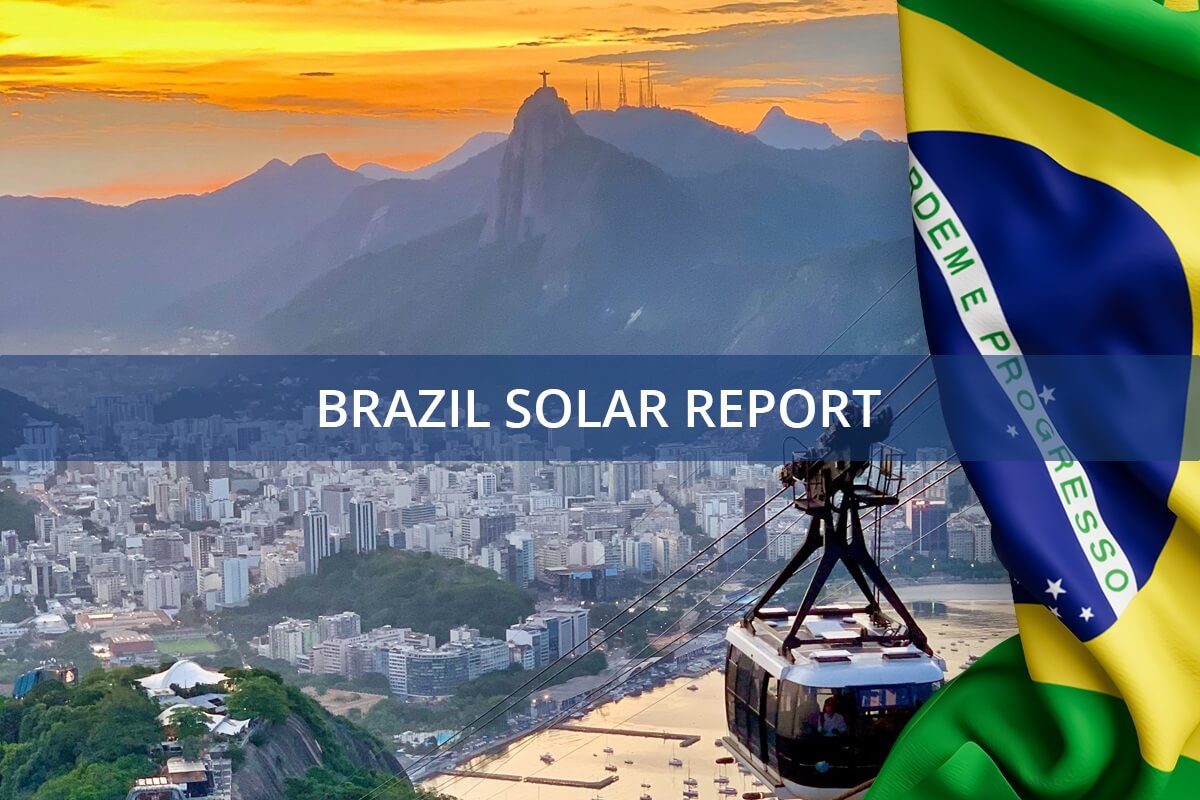Brazil is projected to reach 40 GW of distributed solar capacity by 2025, driven by a surge in installations prior to the implementation of new regulations that will introduce fees for grid usage and other services. This growth is anticipated despite challenges in the sector.
New Fee Structure Impacting Brazil Solar Capacity
Beginning in 2025, distributed solar generation in Brazil will incur fees for using the distribution grid and additional services, calculated based on installed capacity rather than net energy consumption. This change, outlined in Resolution No. 1,074 of 2023 is expected to increase costs for consumers and alter the financial landscape of solar investments. For projects under 1.5 MW in distributed generation (DG) or up to 1 MW in remote self-consumption, the fee will apply based on the installed capacity.
Brazil is set to implement new fees for distributed solar energy in 2025, impacting costs for consumers and altering solar investments.
Earlier projects that connected to the grid by January 2023 are exempt from these fees until 2045. This has led to a rush in installations, with many consumers and businesses trying to avoid the upcoming charges.
Ready to make big Profits?
The solar Industry is Booming
WE HELP NEWCOMERS to the solar industry start their own solar module production line. Customers can make BIG PROFITS by selling modules and finding investors, without wasting money and time on things they don't need!
Projected Growth and Challenges for Brazil Solar Capacity
The distributed solar sector is expected to grow significantly in the coming years, with Brazil’s National Electric Energy Agency (ANEEL) projecting that the country will reach 40 GW of installed capacity by 2025. However, experts caution that the new fees could slow the pace of growth as consumers may become more hesitant to invest in solar systems.
In 2022, Brazil added nearly 10 GW of new distributed solar capacity, with the total installed capacity reaching 21 GW by the end of the year. This rapid expansion was largely driven by the impending deadline for the new fee structure, as consumers rushed to install solar systems before the charges took effect.
Despite the anticipated growth, the distributed solar sector in Brazil faces several challenges. The new fee structure could reduce the financial attractiveness of solar investments, particularly for smaller consumers who may struggle to absorb the additional costs. Additionally, the sector must contend with regulatory uncertainties and potential changes in government policy that could impact future growth. As the Brazil Solar Panel Manufacturing Report | Market Analysis … details, Brazil’s solar market presents remarkable opportunities.
Regulatory Framework for Brazil Solar Capacity
The new regulations aim to address the financial imbalances caused by distributed generation, which allows consumers to offset their electricity bills by generating their own power. While this has led to significant growth in the solar sector, it has also created challenges for utilities, which still need to maintain the grid infrastructure without receiving full compensation from solar customers.
The fees introduced in 2025 are designed to ensure that distributed generation customers contribute to the costs of maintaining the grid and providing reliable electricity service. However, critics argue that the fees could stifle innovation and slow the transition to renewable energy, particularly for residential and small commercial consumers.
Despite the challenges, Brazil remains one of the fastest-growing solar markets in the world, with significant potential for further expansion. The country’s abundant solar resources and supportive government policies have made it an attractive destination for both domestic and international investors. The Brazil Solar Panel Manufacturing Report | Market Analysis … projects anticipate R$170 billion in new investments by 2026, underscoring the sector’s dynamism.
As the distributed solar sector continues to grow, industry stakeholders are calling for a balanced approach to regulation that encourages investment while ensuring the sustainability of the electricity grid. The success of Brazil’s solar market will depend on its ability to navigate these challenges and create a regulatory framework that supports both consumers and utilities.



